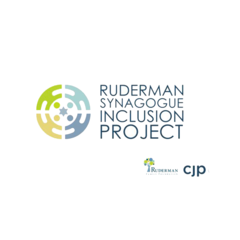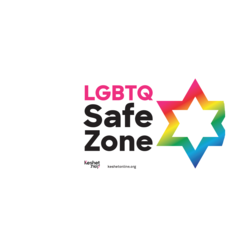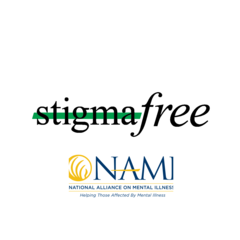Yom Kippur 2007
Nearly 20 years ago, my son Jeremy—then four—posed an interesting question. Having been thoroughly coached on the importance of respecting other people’s religious traditions, he had just returned from an outing with his Dad that took them past a Christmas tree lot. With great seriousness, he approached the question of his soon-to-be-born brother’s religious identity. “What if Daniel turns out to be Christian?” he asked. “Why?” we responded. “Because if he turns out to be Christian, we’d have to help him celebrate his holidays.” We laughed at his visions of family Christmas trees and Easter egg hunts and explained that since Daniel was being born to Jewish parents, he would be Jewish too. Jeremy remained skeptical. “You don’t know that,” he cautioned.
When Rabbi Jaffe asked me to share my Jewish journey with you this Yom Kippur afternoon, I thought of that story, which has become family legend. That’s because over time I’ve come to see that Jeremy was really onto something back then. I just didn’t know it at the time. I was born into a Jewish family, attended religious school, was confirmed, took an active role in youth group and graduated from my temple’s high school program. But for all that, I don’t think I had the slightest idea what it meant to be Jewish. I was in my 40s before I began to get the idea that Judaism might be something worth exploring. As I began to find meaning in my religion, I participated in Torah study sessions, enrolled in the two-year Me’ah program, got involved in the temple leadership and to my great surprise found that Judaism provided me with a deeply satisfying way of exploring spiritual, intellectual and personal questions.
How did I get to this point? To explain, I need to back up and tell you a bit about the Jewish family that I was born into. Three of my four grandparents were first generation Americans whose families had emigrated from Russia, Poland and Vienna. The fourth came from Iasi, Romania when he was just 16. Their religious beliefs were a hodgepodge. The only thing they seemed to have in common was the fact that they were Jews. There was an upper-class group of early émigrés who found their way to Reform Judaism. Those who came from Russia initially made their Jewish home in conservative shuls, while those who arrived later from Eastern Europe defined their Judaism through philanthropy rather than observance. The result was my parents—thoroughly Reform Jews who helped to build SinaiTemple, the first Reform congregation in Springfield, Mass. Today, both my parents are buried next to towering pine trees that my father planted in the temple’s cemetery in those early days.
So I grew up in a Jewish home. There may have been a mezuzah on the door, but I don’t remember it. I also don’t remember lighting the Shabbat candles—at least not until I was older. But the Jewish holidays were celebrated with gusto. There were huge Seder tables at Passover. Along with family members there might a half dozen college students who were too far from home to be with their own families. At Hanukkah, my father decorated big boxes with shiny blue, silver and gold paper to hold all our gifts. We gave money to plant trees in Israel and our weekly allowances included money specially earmarked for Keren Ami.
But it was the 50s. Looking back I am struck by the fact that our Judaism was limited to the home, the temple and the charitable contribution. In the largely Protestant and historic community of Longmeadow, the Springfield suburb where I grew up, we strove to be just like everyone else. To me, the rituals of the Christian holidays were no different than those of Thanksgiving or Fourth of July or even May Day, when we picked baskets of spring flowers for our teachers. My sister and I were angels in the nursery school Christmas pageant, and I fervently wished that I might one day get to be the Virgin Mary. I joyously sang Christmas carols at school and considered myself a connoisseur of Christmas decorations. On Easter, my brother and sister and I woke early and followed trails of pastel jellybeans that led from our bedroom doors to multicolored baskets filled with sugar eggs and chocolate bunnies.
A move to New Jersey as I started high school meant a shift in community. My family joined a large Reform congregation in an affluent community, and it became the center of my social life. I joined the temple youth group, got active in JFTY and enrolled in my temple’s HebrewHigh School. Thinking back, however, I am amazed at just how little I learned despite a huge investment of time and energy. After attending enough conclaves both at the state and national level, I could bench with the best after meals, but I might just as well have been singing Christmas carols. Once I left home for college, I can count on one hand the number of times I stepped foot in a temple before rejecting the concept of organized religion completely.
So what happened? For one thing, I encountered anti-Semitism among my friends and in the workplace, and I found my response sorely wanting. The first instance took place when I was a fledgling newspaper reporter covering a local zoning battle. As we walked acreage that was soon to become rows of townhouses, one opponent of the project explained his strategy. “I’m going to bring in my sheeny lawyer,” he said. “Jew lawyers are expensive but they know how to get things done.” The townspeople who accompanied him— who had always treated me with respect and even affection--simply nodded in agreement. Apparently no one knew I was Jewish. I remember my face flooding with heat, and for a moment I think I even stopped breathing as I absorbed the physical shock of the insult. Yet I said nothing. “I’m being a professional,” I told myself. But I knew that my journalistic objectivity had nothing to do with it.
I also failed miserably in my second encounter with anti-Semitism. Having just bought a new house, my husband and I were touched when our fuddy-duddy bachelor neighbor gave us a handmade cross-stitch sampler that read “Home Sweet Home.” But when we invited him in for coffee, the conversation took an uncomfortable turn as Phil explained how tired he was of all this Holocaust talk. “Jews make too much of it,” he said. “It never happened.” This time I spoke up. I cited history books and documentaries. Films of concentration camps. The Nuremberg trials. He rebuffed all my facts, citing instead the well-known cleverness of Jews who propagated the Holocaust myth. I could have ended the debate easily, but I never said the one thing that would have brought discussion to a close: “I’m Jewish.” In retrospect, I see that my own ambivalence about being Jewish got in the way. Since I wasn’t really sure what kind of Jew I was, I wasn’t ready to proclaim my Judaism to an anti-Semitic bigot who happened to be sitting at my dining room table. The protective and private Jewish family that raised me simply hadn’t prepared me for that challenge. It was, instead, the family that my husband and I eventually created that helped me resolve my Jewish ambivalence.
When I met Peter--the first Jewish guy I dated since high school--I recognized in him a set of shared values that came from the fact that we had both been raised as Reform Jews. Early in our relationship, Judaism was our default position—the one we resorted to when we didn’t have a better answer. When we decided to get married, we opted for a temple wedding. As Peter put it at the time, it would have been a shame to deprive a rabbi the opportunity to marry two Jews.
Then we had children. We decided on a bris for both boys, much to the chagrin of my aunt who said it wasn’t something our family did. Once again, Judaism was our default position. We figured that the boys might one day find it meaningful, and on this topic there were no easy “do-overs.” When the kids started talking, they also started asking questions. The easy ones were “What if Daniel is born Christian?” Much more difficult were “What happens when you die?” Do you believe in God?” and “How do you know God exists?” I had no easy answers because I myself wasn’t sure what I believed.
It was at about that time that we arrived at TempleIsaiah, having fled New Jersey in search of a saner lifestyle. Third grade—Jeremy’s third grade, that is—was a turning point. As part of a family connection class taught by Rabbi David Wolfman, I was exposed to text study for the first time. I was fascinated by the idea that each passage—often each word— could be examined and explored on multiple levels. And the ideas generated in that class were a revelation to me.
How so? Well, consider the story of Jacob, who wrestles with an angel. I had never considered the implications of Jacob earning a new name— Yisrael—as a result of that struggle. Nor had I known that Yisrael literally means one who has struggled with God. All of a sudden it became apparent to me that my struggles with Judaism didn’t set me apart from my religion. In fact, the concept of struggling was an integral part of Judaism—after all, we are all Yisrael.
Struggle. Well, I can do that, I thought.
Equally riveting for me was Moses’ conversation with God in the wilderness of Horeb. I explored that as part of a fourth-grade family connection class with Rabbi Alan Ullman. Here, Moses wants to know God’s name so he can tell the Israelites in Egypt. The name that God provides: “I shall be what I shall be.” An indefinite answer, to be sure, implying possible changes, future evolution and perhaps even arbitrary actions. Some in the class found this greatly unsettling. I, however, was blown away. If God was ever changing, I realized, then my relationship with God would also be ever changing. I didn’t have to believe in a particular God. The possibilities of God suddenly became endless, and I was both comforted and relieved by the idea.
As my Jewish education progressed, I was struck by how little I had understood of Jewish history, text and traditions. Although I had considered myself an educated Jew, I had never experienced Judaism as a highly complex and nuanced way of approaching the world. I loved the fact that the people who wrote our holy texts wrestled with some of the same questions that I was wrestling with. I loved the ability to explore possibilities, recognizing that there is no single right way. And I loved the fact that Judaism is a religion of doing rather than simply believing. I found that by doing—lighting the Shabbat candles, making Purim baskets for the neighbors, reading holiday stories to the kids during Hanukkah—I felt connected to a larger community.
My “doing” expanded to the temple community simply because someone invited me. My first invitation was to join the membership committee, then run by Jane Deutsch and Robert Atkind. It was a remarkable group of people who made the work that we did fun. Then, because I wrote for the Wall Street Journal, someone erroneously assumed I knew something about finance, so I was invited to join the finance committee. I wasn’t much impressed with the work—which was all about numbers—until I got a quick tutorial from George Eisenberg on TempleIsaiah’s approach to something called “special arrangements.” No one is ever denied membership at TempleIsaiah for financial reasons, I was told. Instead, people who cannot afford the dues are simply asked to pay what they can afford. There are no financial forms to fill out, no request for tax returns to verify the numbers. The people sitting around that finance committee table made it clear that it is a privilege to be able to quietly and respectfully offer members of our community the support that they need.
Even more compelling was that fact that a full 25 per cent of our membership is on special arrangements at any one time. And I have since been told stories of people who, upon finding their circumstances improved, are so thrilled to return to full dues that they make additional contributions to the temple as well.
The lesson taught me by the finance committee was as powerful as any text study I had yet encountered. It reminded me that it is the way Iapply my Jewish beliefs in living my life that gives meaning to my religion. As a professional journalist, I have often volunteered to teach writing workshops in Lexington’s elementary schools and I sometimes tutor high school students on their writing. When asked to explain good writing, my mantra is “Show them, don’t tell them.” To do that, they must be keen observers and use active verbs, not passive ones. I guess that perspective is also reflected in the way I now approach Judaism. I think of being Jewish as an active verb which includes past, present and future tense. In taking this approach, I find that I now have no problem understanding the kind of Jew that I am. I am an evolving one.





